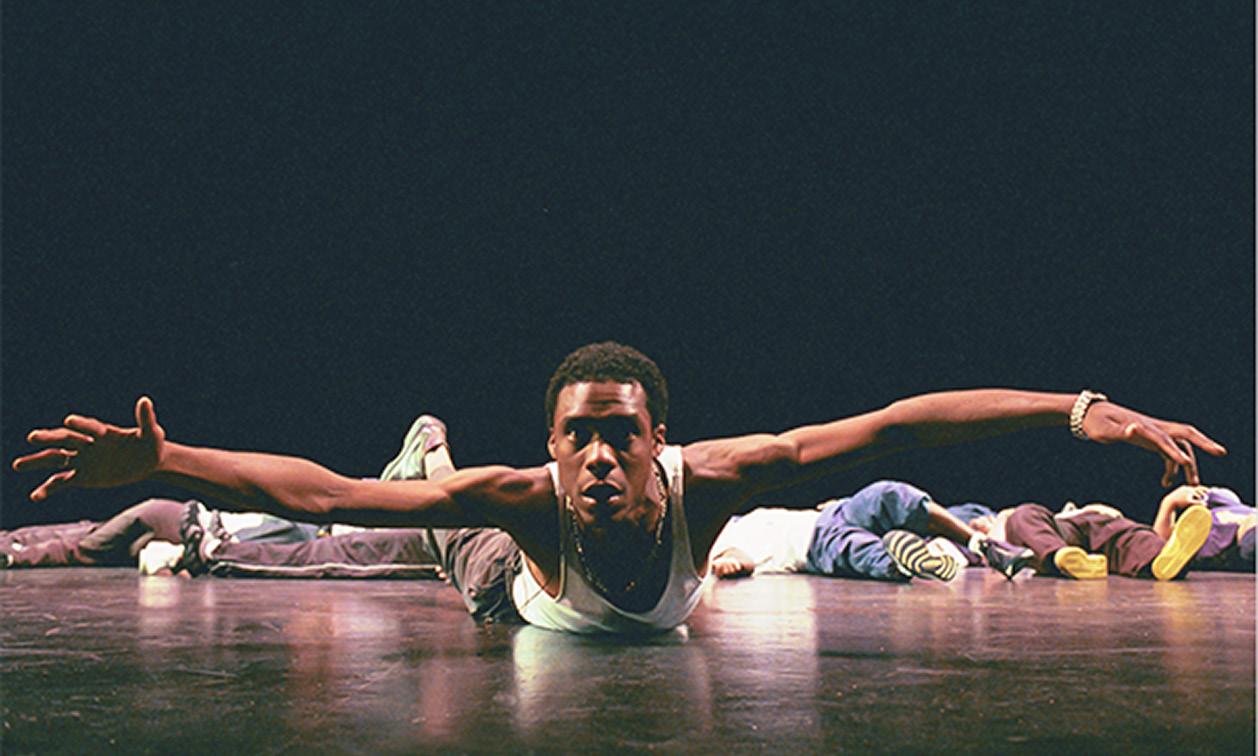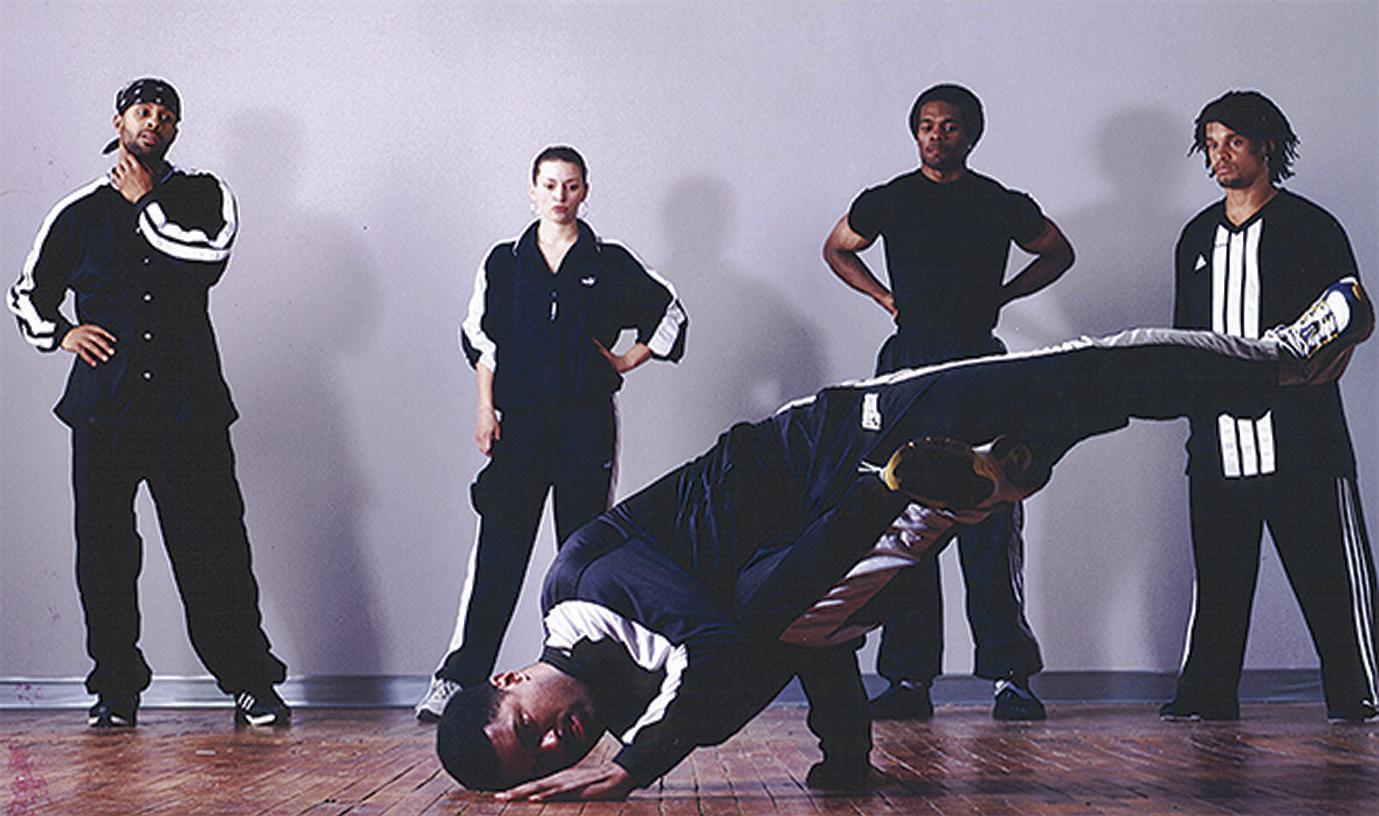
4 minute read
Rennie Harris’s “Classic Rome & Jewels” shines at the Joyce
By ZITA ALLEN Special to the AmNews
Rennie Harris and his amazing hip-hop dance company, Puremovement, founded in 1992 and dedicated to preserving and disseminating hip-hop, roll into the Joyce Theatre with the seminal masterpiece “Rennie Harris presents: Rome & Jewels” on Tuesday, Feb. 7 at 7:30 p.m., as both a celebration of the 30th anniversary of America’s longest-running street dance company and a reminder that art doesn’t just entertain—it enlightens.
For 30 years, Rennie Harris Puremovement American Street Dance Theater has been the preeminent ambassador of hip-hop and street dance culture, starting in founder and artistic director Harris’s home city of Philadelphia and taking it to a global audience. This time around, Harris is celebrating a milestone anniversary, reminding us where it all began. He takes the well-worn story of William Shakespeare’s famous starcrossed lovers and moves it to the streets of Philly, infusing this tale of love, fear, violence and triumph with the racial, religious and economic questions and insights that are just as relevant now as when Harris created the piece in the late 1990s.
The Amsterdam News caught up with Harris to talk about the Shakespeare Theater Award winner and three-time Bessie Award-winning work that reinvents the timeless tale yet again by embodying the diverse African Diasporic traditions of the past while paving the way for an innovative story told through dance. Of course, there’s the where-didthe-time-go feeling, Harris said, ac- knowledging how amazing it is that both hip-hop as a dance form and his dance company are still here.

Harris said, “You know, I often just put on my blinders—my horse glasses—and just keep my head down and keep movin’. Then one day somebody said, ‘What are you going to do for your 30th?’ And, I was like, “… it’s been 30 years for the company and it’s been 25 years of ‘Rome and Jewels.’ It’s overwhelming to think of it from that perspective.”
Of the dance, specifically, Harris said, “There haven’t been that many physical changes with regard to the work itself. The choreography is exactly what it was before. The story’s the same. There’s a slight difference in the technical end, but we have some of the original cast members.” In terms of relevance, he added, “Everything is still [the same]. Madness out there, actually, even more so. Did we take two steps forward and then slide back?”

But hip-hop has persevered. So has Harris. He’s been voted one of the most influential people in the last 100 years of Philadelphia history and received many awards, including the Governor’s Arts Award and a United States Artist Fellowship. Critics have called him “the Basquiat of the U.S. contemporary dance scene,” and he’s contributed to the repertoire of the Alvin Ailey American Dance Theatre and other companies.
What’s more, not only is his company celebrating its 30th anniversary, but hip-hop is celebrating its 50th anniversary.
Harris didn’t think 30 years ago that either hip-hop or his company Puremovement would last this long and remain this relevant. Of course, he said, there’s still the problem of “gatekeepers” allowing enough access for the younger generation to see it and be engaged with it. “I feel like it’s no different from where jazz was 30 years, literally, or Modern or PostModern—no different from those earlier expressions or how they’ve both gone global.”
Yet, there are some spaces where hip-hop is still pushed to the side as “what those kids do” and where, Harris said, “academic privilege, the privilege of defining yourself, is out of reach. Folks think they know what it is and then when I demonstrate this is what it is, or I teach classes on hip-hop, they’re still kind of shocked.” Besides, he added, “the best way to understand hip-hop culture is to realize that there’s more to it than many imagined.”
Of course, Harris said, we all want some type of entertainment escape when we go to a hip-hop dance event, especially in the face of what hip-hop writer Bakari Kitwana calls “America’s unfulfilled promise of equality and inclusion.”
For Harris, dance is about “how do I provoke a conversation. The truth is in the conversation. Specifically with ‘Rome and Jewels,’ that’s where it’s at. ’Cause some people go expecting Shakespeare’s ‘Romeo and Juliet’ and they’re going to go, ‘Oh, shit!’ And I’m going to go ‘Yeah, this is not that!’ However, it is on some levels. Right?
“There’s a line that we did 25 years ago where Rome says ‘Get beat down like Rodney,’ referring to the infamous police beating of Rodney King, and the other night in Boston,
Rodney Mason, who plays Rome, changed the line to ‘Get beat down like Tyre,’ referring to the brutal police murder of Tyre Nichols that took place in Memphis, Tenn. And everybody was like silent, you know, and then he goes on, ‘You trained me. I was born to kill. As a Black man, that’s what you’ve done to me.’ It’s this moment you be like looking at the audience, thinking, ‘Oh-oh! You can’t run from it ’cause you’re sitting in the chair in the audience and he’s telling you. He looks right at the audience, and he says, ‘You used me.’
“And I’m like, Oh, ohh, ohh! You know it’s so relevant and it’s sad that it’s relevant. It’s like ‘What, what! And ‘Rome and Jewels’ just moved right into today, just aligned to today by changing it on the spot.” The audience was dead silent.
“Folks who just hear ‘hip-hop’ and think the circus is coming to town… well, I be like ‘Yeah, but you might want to call the theater and find out what kind of show this is’...especially in the times we’re living in. And, the interesting part is it really has nothing to do with the viewer,” Harris said. He explained that it’s not about confronting the audience, it’s about the need to have a conversation about what’s going on in the real world.
“It has to do with the culture, our culture,” he said. “Creating art is based on the shit that’s bothering the artists. You know what I mean. It’s an issue they have to get out and voice to remain sane or not commit suicide or have mental health issues. For artists, it’s the best therapy ever.”
For the audience it’s an eyeopening experience. In the end, Harris said, “I just want people to come with an open mind and an open heart. And I hope they enjoy it. That’s it.”
And undoubtedly think about how art reflects life and vice versa.
This anniversary restaging of “Rennie Harris presents: Rome & Jewels” will introduce new generations of audiences to Harris’s powerful work and the essence of real hip-hop.
For more info, visit www.joyce.org.









